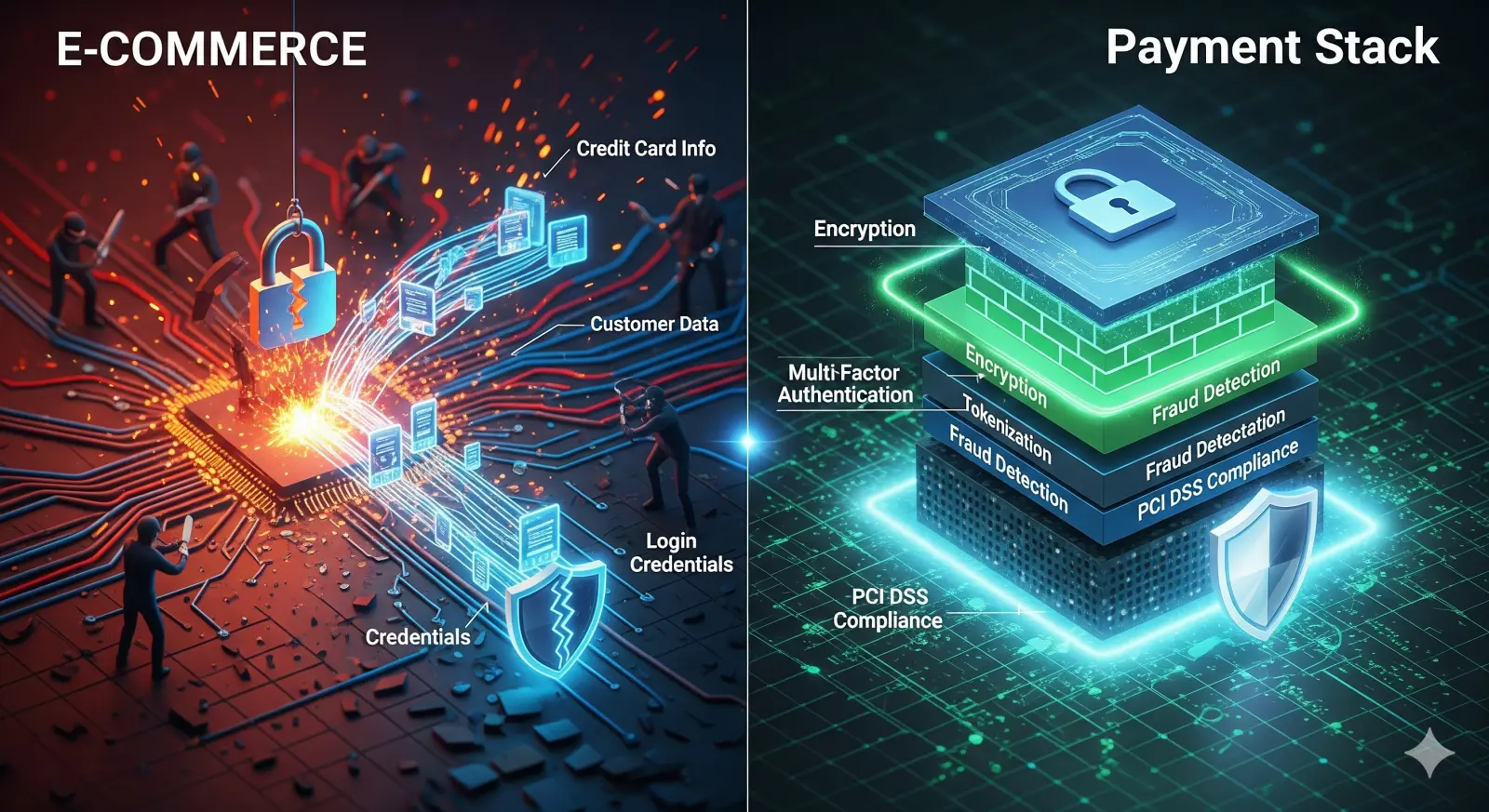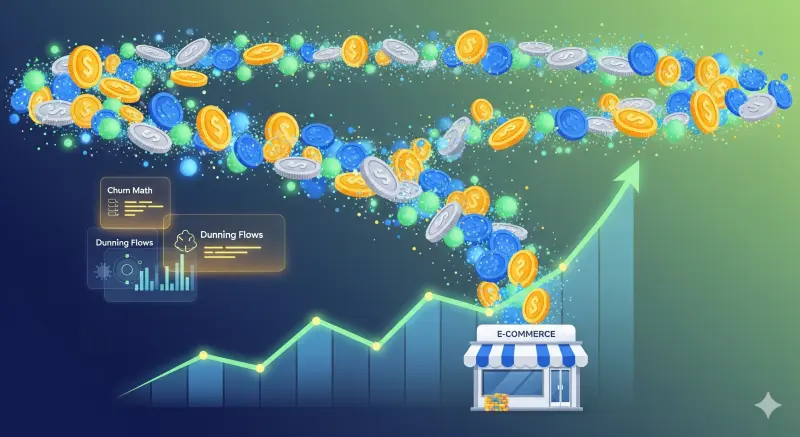Elite Webstores Team
E-Commerce Security Breaches: Lessons Learned and How to Fortify Your Payment Stack
Average time to detect a payment data exposure in 2025: 41 days. Compress that to hours and you convert existential risk into manageable incident response.
Security failures today: less about brute force, more about supply chain scripts, credential stuffing automation, misconfigured cloud resources, and vulnerable third-party SDKs.
Breach Pattern Snapshot (2025)
| Pattern | Description | Impact Vector | Lesson |
|---|---|---|---|
| Magecart 4.0 | Obfuscated injection via tag manager fallback | Skims PAN + CVV silently | Strict CSP + subresource integrity |
| Credential Stuffing 2.0 | Tooling with human-like pacing + residential proxies | Account takeover → stored methods abuse | Device fingerprint + velocity anomaly models |
| Token Replay | Intercepted session or weak JWT handling | Fraudulent post-auth charges | Short-lived tokens + audience binding |
| Misconfigured Buckets | Exposed logs containing partial PAN or tokens | Data exfil / compliance fines | Automated config scanners |
| Dependency Supply Chain | Compromised NPM package updates | Skimmer or backdoor | Pin + integrity verify + provenance checks |
Root Cause Themes
- Excessive implicit trust in script supply chain.
- Siloed logging (slow correlation across PSP + app + CDN).
- Weak secret rotation practices.
- Over-permissive IAM roles for build / deploy bots.
Defense-in-Depth Blueprint
- Data Minimization: Never store raw PAN—use PSP tokens only.
- Tokenization Strategy: Vault with multi-PSP portability (avoid closed ecosystems).
- Encryption-in-Transit: Enforce TLS 1.2+, HSTS, OCSP stapling.
- Client Integrity: CSP (script-src nonce), SRI hashes, dependency allowlist.
- API Security: mTLS or signed requests for internal payment microservices.
- Secrets Hygiene: Automated rotation (KMS) + no shared human accounts.
- Observability: Unified event pipeline—auth declines, risk flags, chargebacks.
- Anomaly Detection: Baselines on auth rate, BIN mix, latency, geographic skew.
- Access Control: Least privilege IAM; ephemeral build credentials.
- Incident Runbooks: Tested tabletop exercises—timed metrics (MTTD, MTTR).
PSP Angle
| PSP | Built-In Security | Merchant Responsibility | Quick Action |
|---|---|---|---|
| Stripe | PCI Level 1, Radar, network tokenization | Secure webhooks + secret rotation | Verify webhook signatures everywhere |
| Checkout.com | Advanced fraud + routing controls | Event logging + custom risk signals | Stream events to SIEM for correlation |
| PayPal | Buyer + seller protection tooling | Front-end integrity + recovery flows | Monitor dispute reason trends |
| Worldpay | Fraud screening + token vault | Access governance + replay defense | Audit token scope + retention |
Monitoring Playbook
Narrative: Stream PSP webhooks + app logs + WAF events into central lake. Define golden signals: auth rate drop >80 bps in 10m, surge in BIN region anomaly, spike in 3DS challenges, rise in JavaScript errors on checkout page. Trigger on-call + auto snapshot of active scripts + config state.
Metrics & Thresholds
| Metric | Normalized Target | Alert Threshold |
|---|---|---|
| Mean Auth Rate | >94% (core markets) | -0.8% in 15m window |
| Fraud Loss % GMV | <0.15% | >0.25% rolling 7d |
| ATO Incidents / 1k Logins | <0.4 | >1.0 |
| Sensitive Log Artifacts | 0 leaked | >0 occurrence |
| Time to Revoke Leaked Key | <30 min | >45 min |
Incident Response Snapshot
- Contain: Disable compromised keys / rotate tokens.
- Eradicate: Patch exploited component / remove malicious script.
- Recover: Re-enable services behind WAF rules + staged traffic.
- Notify: Legal, PSPs, affected users (jurisdiction timelines).
- Post-Mortem: Blameless analysis + control gap fixes.
Common Anti-Patterns
| Anti-Pattern | Risk | Fix |
|---|---|---|
| Single PSP Dependency | Outage or targeted fraud amplifies impact | Add second PSP + orchestrated failover |
| Logging PII in Full | Regulatory + breach blast radius | Mask + hash selective fields |
| Long-Lived API Keys | Escalation window | Rotate + scoped ephemeral tokens |
| Manual Config Drift | Hidden insecure states | GitOps + policy as code |
Checklist
- CSP + SRI enforced
- Unified event ingestion active
- Token portability validated
- Secret rotation automation deployed
- Second PSP routing tested
- Incident tabletop completed in last quarter
Where Elite Webstores Helps
We harden payment platforms: token migration plans, multi-PSP orchestration, observability pipelines, and security governance frameworks.
Need a security posture uplift? Contact us or review Services.
Make attackers work harder than your competitors do. Fortify now →



